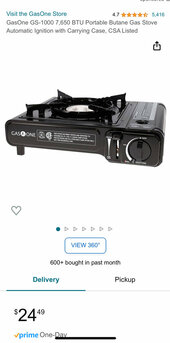HarryN
Solar Addict
Your life will be a lot easier if you purchase pre-made Li batteries.
The savings of home built vs buying a commercial battery are not as significant as they once were.
The biggest mistake most people make in building a power station, including the commercial offerings, is far to low of battery capacity. As an example, your original post would need something more like 4 x 100 amp-hr @12 volt equivalent to work reliably. That is approaching 75 - 100 kg by the time it is all in the box.
The savings of home built vs buying a commercial battery are not as significant as they once were.
The biggest mistake most people make in building a power station, including the commercial offerings, is far to low of battery capacity. As an example, your original post would need something more like 4 x 100 amp-hr @12 volt equivalent to work reliably. That is approaching 75 - 100 kg by the time it is all in the box.



